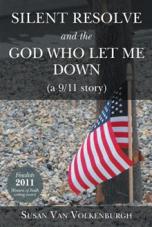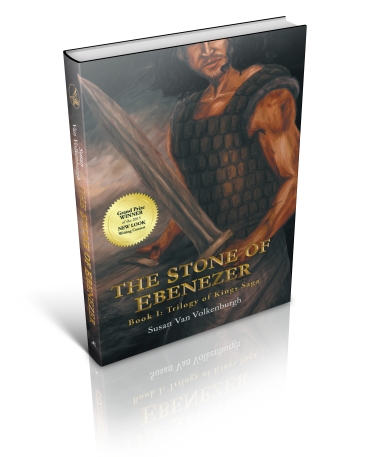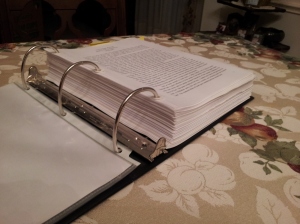I don’t know when it began. It just started—the need to have control over every aspect of my life. Call me a control freak, but I desire to be the master of my own fate.
I first became aware of this side of my personality when I started homeschooling my daughter. I bought the popular kindergarten curriculum, you know, the one all the experienced homeschool mom’s recommended. It was subtle at first, that growing resentment of someone telling me what to do, when to do it, and how to do it.
“Who are they to tell me what is right for my child?”
“Do these experts know her unique learning needs?”
“Does every child need the same skills at the same time?”
“For what purpose are these exercises prescribed? Is there a specific skill being developed or is this just busy work?”
The questions kept coming.
I have never had trouble with authority figures before. So what was happening? Why was I questioning the status quo?
I was becoming a rebel, but a rebel with a cause. The welfare of my right-brained daughter was at stake. I would sacrifice anything, learn everything in order to provide the best for my child.
But what does that have to do with self-publishing?
Everything.
It was through the experience of creating my own curriculum designed specifically to meet the needs of my children that grew in me the confidence needed to plunge head deep into publishing my first book.
 My story was my creation, born through the events of my life. I discovered a deep-seated desire to present the book in an unadulterated format—one truly of my own making. Yet the process was new to me, so some guidance was necessary. That is why I chose a publisher like WestBow Press. They offered me the freedom to control the process without abandoning me to the process.
My story was my creation, born through the events of my life. I discovered a deep-seated desire to present the book in an unadulterated format—one truly of my own making. Yet the process was new to me, so some guidance was necessary. That is why I chose a publisher like WestBow Press. They offered me the freedom to control the process without abandoning me to the process.
I saw it as the best of both worlds.
Yet, that was my non-fiction. I finished work on a fiction novel. I wanted to do right by my creation, my child, so I began investigating the traditional publishing route. I even sent out some writing proposals to prospective agents.
What I learned is that there is a code to writing a query letter, yet the proper way to approach the query is very specific and mysterious. There are many willing to give instruction concerning the qualities of a good proposal. Unfortunately, each has different advice. It is all very confusing. As an analytical thinker, this left me baffled. But I kept at it, and my skill grew. Yet, the joy of writing began to fade. I spent so much time learning the query process, it left little time to actually do what I love—write.
One needs an agent before you can approach a traditional publisher (the agent will require about 15% of you royalties). Then the process begins again; this time it is the agent that takes your query before the publisher (the publisher will require up to 80% of your royalties). All this takes a long time. And just because you have an agent, it does not mean a publisher will pick you up. Let’s face it, there are many people trying to get books published.
Wait—15% + 80% = 95%
That leaves only 5% for the author…
WestBow Press has a 50-50 relationship with their authors and no agent required.
With traditional publishing, you are counting on numbers—more exposure means more money. It is true, a traditional publisher does have more contacts in the industry than you. Their name speaks volumes. If a traditional publisher choses your book to publish, that means you must have written a good book, right? So the populace will buy your book in droves!
Well, not really—I know I have read some not-so-well-written books published by some well-known traditional publishers. There are no guarantees.
The traditional publisher is taking a risk on your book, so they are picky on which works they gamble. It is their money upfront. They have everything to lose. And you, the author, will not see another dime until you have sold enough books to pay back the publisher’s initial investment.

by pannawat @ FreeDigitalPhotos.net
Some publishers only allow you three months to prove your worth. That is not enough time for most unknown authors to establish a following. If you do not reach expectations in a timely manner, the traditional publisher, who, by-the-way, has the rights to your manuscript, can shelve your book. What this means is they pull your title from the shelves and recycle all printed copies of your work. You cannot do anything with your story until the contract runs out with the publisher and the rights to your work revert back to you.
It is true that most bookstores will not place self-published books on their shelves, but this is not as important as it once was. Shelf-space on the internet is unlimited, so online bookstores, such as Amazon, will gladly carry your title, and for as long as your title is active. This allows the new and upcoming author time to build a solid author platform.
It does take much effort to draw a following for your work, but marketing is not just for self-published works. Yes, the weight of it does fall on the author’s shoulders. But traditional publishers are looking for authors who are willing to self-market their own books as well. Do not think that with traditional publishing, you do not have to worry about marketing. Whichever way you decide to go, marketing your book is your responsibility.
Do not fear, there is help out there for the self-publishing author. There are many agencies you can hire to market your work. These can be costly. If you do not have a budget for this type of marketing, there are other avenues to follow: blogging, social media, Google-ads. It is all doable.
Do not get me wrong. I am not against traditional publishing. As an author, one must weigh the cost-vs-benefits of all forms of publishing.
You, as the creator of your work, must decide what best fits your needs.
A traditional publisher is all about selling, after all, they have invested large sums of money on your product. With sales in mind, editing your book will be about what the publisher believes will be popular with the public. The names of your characters, what they wear, how the story plays out: all aspects of your work will be edited and rewritten to meet the goal of a profit margin. And you, the author may have some say, but the editor has the final word. I heard from one author who said that only 20% of her original manuscript made it through the editing process. It is possible she needed the editing, yet this prospect frightens me.
If making a living at writing is your goal, the traditional publisher may be right for you. After all, they do have experience in the field and have been successful with other books.
For me, I decided to self-publish. After careful consideration, I believe that my goals are contrary to that of a traditional publisher (at least at this point in my life). I write for the pure art of writing. My literary style, the cadence I use, the words and phrases I choose, are done so for the lyrical value of my work. While I appreciate the advice of a good editor (I do strongly suggest using an editor), I want the final say. With self-publishing, I am the chief contractor for my enterprise. Everything passes before me and gets my approval.
With that said, my future rests in my own hands. My decisions will be the success or failure of this crazy, wonderful expedition on which I have ventured.
Will I ever publish traditionally? I cannot say. Circumstances and goals change. But for now, I enjoy the prospect of being the master of my own fate.
Happy writing.
~ Susan
SILENT RESOLVE AND THE GO WHO LET ME DOWN (a 9/11 story) is available through WestBow Press and online bookstores: Amazon, Barnes and Nobles.
Look for Susan Van Volkenburgh’s award winning novel, THE STONE OF EBENEZER, Book 1: Trilogy of Kings Saga, coming the summer of 2015.









